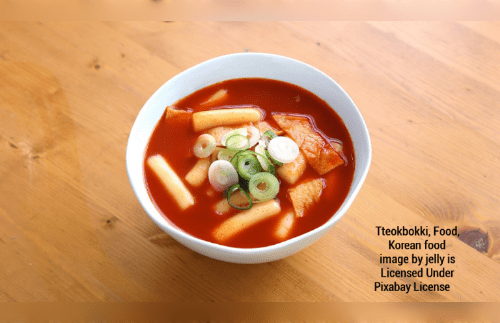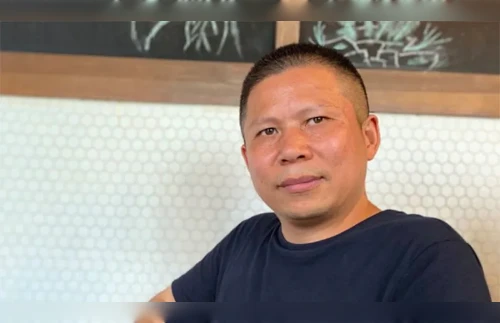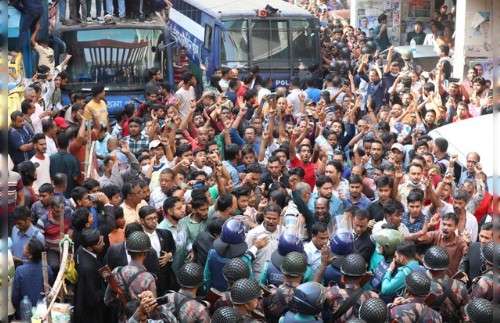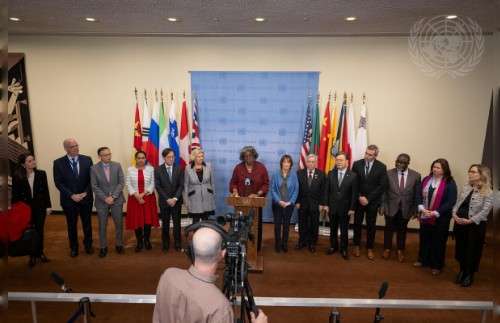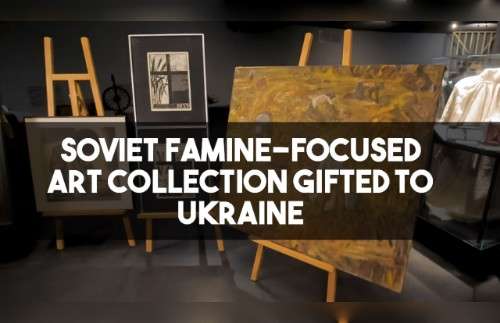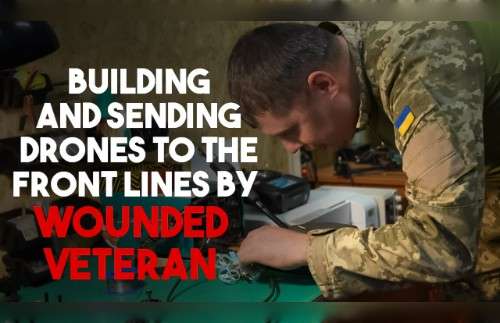Critics say the junta wants to isolate Aung San Suu Kyi and President Win Myint from the outside world.
By RFA Burmese

Myanmar’s deposed State Counsellor Aung San Suu Kyi and President Win Myint have not been allowed to meet with their legal team since their trials ended in December of last year, Radio Free Asia has learned.
The two leaders were the most senior members of Myanmar’s democratically elected government when it was overthrown by the country’s military in a coup in February 2021. Suu Kyi has been sentenced to a total of 33 years in prison in 19 corruption cases, whereas Win Myint has been sentenced to a total of 12 years in eight cases.
The legal team requested to meet with their clients in mid-January, but the military junta authorities have not granted them permission, a source close to the legal team, who requested anonymity for security reasons, told RFA’s Burmese Service.
“I am very worried because the legal team’s request to see them was not granted, and we know nothing about whether the detained leaders are in good health,” he said. “I do believe that the team should be allowed to see them. They need instructions for [legal processes.]”
Suu Kyi, 78, is held alone inside a small building inside the Naypyidaw Prison. The legal team has said that they were allowed to send necessities to her in the prison once per week, but they have not been allowed to meet her since December.
Authorities transferred Win Myint, 72, to Taungoo Prison in the southern Bago region on Jan. 14.

RFA attempted to contact Naing Win, the spokesman and the deputy director for the prison department for comment, but phone calls went unanswered.
“According to the law, prisoners and detainees must have the right to meet with their lawyers,” a criminal justice lawyer from Yangon, who declined to be named, told RFA. “It is clearly stipulated in the law. The prison manual specifically provides the right for inmates to meet with their lawyers. There is no restriction on this right.”
The lawyer said the junta was disrespecting the rule of law by not allowing the ousted leaders access to legal representation.
The legal team has filed appeals for multiple cases in the Supreme Court, and the court has rejected some of the appeals and accepted others.
Intentionally isolating the leaders
The junta is isolating the two ousted leaders from the outside world, said Bo Bo Oo, who prior to the coup represented Yangon’s Dala township in the National Assembly as part of Suu Kyi’s National League for Democracy Party, or NLD. He said it is to their advantage to not allow the leaders to communicate with anyone outside of their prisons.
“[The junta] knows that they will never hear any words of support for them from the leaders,” he said. “I must say this is a blatant violation of their rights.”
Than Soe Naing, a political analyst, said that continuing to deny them legal access was not surprising, considering the coup itself is based on “false accusations.”
“It is one of their usual suppression methods. They restricted lawyers and legal experts so that they can only participate to the extent that they are allowed,” he said. “The junta court’s final verdicts … means trying to stop all legal activities.”
He said the junta is discarding the law because it is advantageous in this case.

Maung Maung Swe, another lawmaker from the NLD party who served time at the same prison where Suu Kyi is detained, told RFA that he was worried about her health.
“At her age, and I know that her building is too small… she has been completely cut off.” he said. “Frankly speaking, I am really worried something might have happened to her as we haven’t been able to hear from her for a long time.”
The U.N. Secretary-General, the United States, the European Union and other members of the international community have called for the release of Suu Kyi, Win Myint and every other person unfairly detained by the junta.
Special Envoy to Myanmar for the U.N. Secretary-General Noeleen Heyzer requested that Suu Kyi be allowed to return to her home when she visited with the junta’s leader Sr. Gen. Min Aung Hlaing in August 2022.
Translated by Myo Min Aung. Edited by Eugene Whong and Malcolm Foster.





